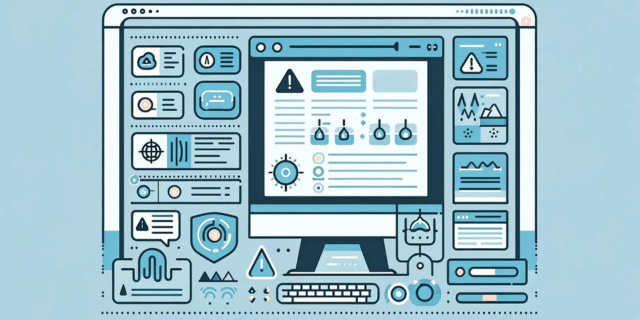In honour of International Women’s Day, we had the pleasure of chatting with five remarkable women from our team at Just After Midnight. During our conversation, we explored their journeys in the tech industry and why this year’s, #InspireInclusion, really matters.
Anjali is an Account Manager based in Boston, USA. She keeps a watchful eye on mission-critical stacks and apps for our cousins across the pond.
Shyama is a DevOps Engineer based in the north of England, UK. She ensures our partners’ pipelines deliver new features at speed and with quality.
Myat is a Senior Solutions Architect based in Australia. She tinkers, builds and prunes in the worlds of cloud-native, hyperscale and next-gen technologies.
Hang is a Senior DevOps Engineer based in London, UK. A long-running fixture of JAM’s London life, Hang ensures the digital transformation journey is nothing but plain sailing.
Celine is our Delivery Director based in Australia. She oversees the delivery of our projects and services for our wonderful clients.
What does this year’s International Women’s Day theme #InspireInclusion mean to you?
Myat: It just reminds me of the amazing progress we’re making towards equality. It’s inspiring to see women everywhere being encouraged to carve their own paths and make their place in the world. I truly believe that investing in women, who make up half of our population, and tapping into their energy, wisdom, talent, and creativity is crucial for building a brighter future.
Celine: We have come so far and there have been so many changes during my lifetime but unfortunately, there’s still a lot of inequality regarding women around the world. This year’s theme #InspireInclusion is a reminder to celebrate those women who fought for what we have today and to keep pushing and fighting that this becomes the norm globally so that one day, we won’t need IWD anymore.
Shyama: As a woman who immigrated to this country a few years ago and has worked in different roles in the IT industry, it is very important to me that we do more to make women feel confident to work in the tech industry. This means consciously ensuring that women are included in discussions and meetings and giving women training opportunities tailored around things like child care.
Have you ever experienced imposter syndrome, and if so, how do you manage it?
Anjali: When I first started working a desk job, I was the youngest employee in the office. I often wasn’t taken seriously (which was fair for that stage of my career) but that got me into the habit of not taking myself seriously, and discounting my own efforts. It’s still a work in progress internally, but externally it helps hugely that Just After Midnight is great about recognising and appreciating effort, and that’s something I treasure very much about being here.
Shyama: Yes, I have experienced imposter syndrome in some of my previous roles. I try to manage it by preparing myself the best I can to perform better. For example, I used to work as a Development Team Leader, and in this role, I almost always found myself as the only female in the room in technical meetings. It could get really daunting when all your peers seemed very knowledgeable about the topics that were being discussed. I used to prepare myself upfront for these meetings, by going through as much information I could on the topics being discussed, so I could contribute to the discussions and not feel out of depth.
Myat: Definitely! Whenever I felt overwhelmed, I managed those feelings by talking to my friends and supportive colleagues who always had faith in me. And I acknowledge the feeling, shift my focus away from any shortcomings and concentrate on how I can improve. Also, I remind myself that each day is a new start this is what keeps me going forward, but not backward.
Celine: All the time! I think it’s somewhat normal to doubt your ability and I don’t think this is specific to being a woman (maybe the guys are better at hiding it?). I’ve been very blessed in my career to have had friends, mentors, team leaders and line managers who would not look at me as a female in IT but rather at my skills. It is important to know and remind yourself that I got this job because I am good at my job, worked hard to be where I am and that I deserve it. Some people are always going to be jealous and try to bring you down, but this is when you must remember that you are where you are because you are worth it.
How can companies create a more inclusive environment for women in tech?
Anjali: I feel very lucky to be able to say that it’s been a long time since I’ve personally encountered issues relating to gender dynamics in the workplace. For the last 6ish years I’ve been here, JAM has been such a safe space for me.
Celine: Having the right people at management level is crucial as this will trickle down to the team and the right culture will fall into place. From my experience as a mother, I think companies could support mothers better; help them not feel guilty for being mothers, such as allowing flexible work hours, support them by having facilities at the office for returning mothers like a place to pump milk, some sort of child-minding facilities in the office, or closeby. If a company looks after mothers, there would be more women in tech and they would pay back so much more.
Hang: My experience as being a “woman in tech” has been fairly positive, and one that I’ve found pretty rewarding. It is a male-dominated industry, but I love to make friends with people in this field, which means that both men and women can help form the basis of a support network. I never experienced any form of discrimination as a “woman in tech”, but I know others did. When that happens, you’re probably dealing with the wrong people and you should always believe in yourself that you are going to prove them wrong!
Shyama: Flexibility is quite important. In terms of creating a more inclusive environment, that could be allowing flexible working hours or even within set working hours, allowing people to take time out for doctor’s appointments etc. and not being strict about the set hours – treat people as adults.
I think it is also important to reduce technical jargon when advertising openings, and in the workplace. Because of the low numbers of women in tech, it can be a real struggle for women to maintain confidence in their technical capabilities in a male-dominated environment, where everyone is pushing to make their ideas heard. It might sound discriminatory, but when a woman has been quiet in a male-dominated meeting, it could be a good idea to try and bring them into the discussion – perhaps by asking them what they think about the topic being discussed. This would apply to any minority group in a meeting.
How do you think the tech industry has evolved in terms of gender diversity since you started your career?
Shyama: The law allowing both mums and dads to share maternity leave has been a step in the positive direction. Also, there has been more open discussion about the gender pay gap and things that impact women and their work life, for example, menopause, periods etc. I think these are all positive steps in terms of gender diversity.
Myat: Early in my career, my development team was mostly men. Now, I see many talented women joining the team and contributing their unique skills and perspectives. This reflects the tech industry has been shifting its focus from gender to skills and qualifications, which is really a positive change.
Celine: I remember the first semester of university, we had 13 girls in my IT class of 80. By the end of the first semester, there were only 8. By the end of the first year, we were only 5 girls. IT was not a popular choice for women and those who did, like me, had to face multiple challenges. Once I graduated and started my career, there were always challenges and inequalities because you were that one female in the team of developers and in an industry where it was very much male-dominated. Fast forward a couple of decades, even though it is still a male-dominated industry, amazing women are leading in all aspects of the tech industry and there’s amazing support available now for women, from women.
In your opinion, what initiatives or strategies could help encourage more women to pursue careers in technology?
Myat: I once worked alongside a remarkably smart, visionary, and resolute woman, and was truly inspired by watching and listening to her strategic approach to solutions amidst various challenges during our meetings. Embracing more women with such diverse talents in tech can greatly influence and offer enriching hands-on experience and mentorship opportunities to the younger generation. Featuring such successful women in the industry on company websites, at conferences, and through marketing materials can create prominent, motivational role models for young women. Additionally, highlighting the flexible and remote work options in tech careers can be particularly appealing to women aiming for a balanced work-life dynamic.
Shyama: It is important that in STEM subjects, which women are less likely to pursue, discussions need to involve girls and boys equally, with any groups including a good split of boys and girls. For example, a girl should not be in a position where they don’t join a Physics club because they’re the only girl in the group. They should be made to feel comfortable in a male-dominated environment and this comes down to the culture in schools.
Affordable and flexible short-term courses in technology for women-only groups would also be very beneficial to entice women into technology, for example, mothers and housewives struggling for time. Things like child care being provided (or even subsidised) by companies would also definitely help.
Celine: Break down the stigma that most women in tech are from the marketing, advertising, HR, and account managers side and not developers or technical. Encourage that being a developer, engineer, tech lead, head of tech, CTO are also career paths that women can do. I’m amazed and inspired by the women leading the way in breaking down those misconception.
Hang: I think women would absolutely kill the game as a group if more of us chose tech occupations. I’m always interested in learning from female leaders, female coders as it is important to get a good sense of all the possibilities that could unfold in my career.
Inspiring Inclusion
More than just a hashtag, #InspireInclusion should be a call to action to champion and support women in the tech world every single day. Here at JAM, we work hard to foster a supportive environment for everyone and we’re super proud to have such inspiring women on our team.
Thanks to our brilliant interviewees, Anjali, Celine, Hang, Myat and Shyama for taking the time to share their experiences.




